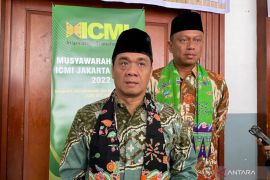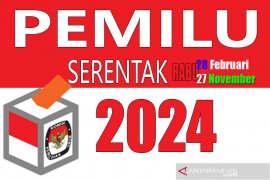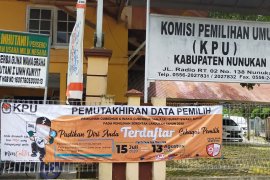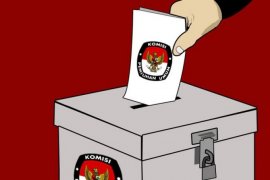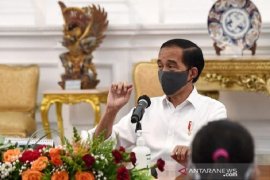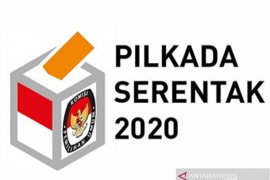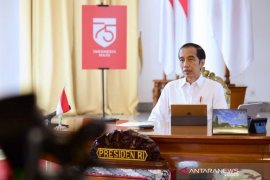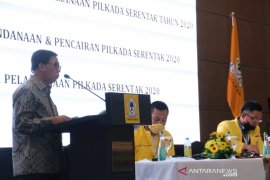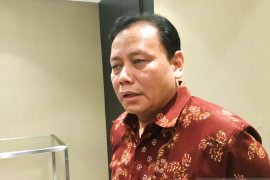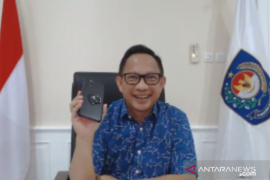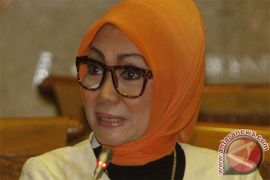Komnas HAM lauds the postponement of the 2020 elections by the KPU, Bawaslu, DKPP, and the DPRJakarta (ANTARA) - The novel coronavirus (COVID-19) pandemic has brought several countries to a near standstill, as activities involving the congregation of public, including music concerts, sports games, conferences, tourism bourses, and festivals, are either postponed or cancelled.
In Indonesia, the COVID-19 crisis has left Jakarta Governor Anies Baswedan with no choice but to announce on March 11 the postponement of the ABB FIA Formula E Championship, the 2020 Jakarta E-Prix, earlier scheduled for June this year.
On April 6, Trade Minister Agus Suparmanto had also decided to postpone the country's largest trade exhibition, the Trade Expo Indonesia (TEI) 2020, scheduled for September, to stem the further transmission of COVID-19.
The fourth simultaneous regional head elections (pilkada), earlier scheduled for September this year, was another major event that was postponed owing to the coronavirus outbreak.
The simultaneous pilkada was planned to be held in 270 regions across the country to elect governors in nine provinces, district heads in 224 districts, and mayors in 37 cities on September 23, 2020. The number of eligible voters in the fourth pilkada reached at least 105 million.
The decision to postpone pilkada was made during a hearing of Commission II of the House of Representatives (DPR), with attendees comprising officials of the Home Affairs Ministry, Indonesian General Election Commission (KPU), General Election Supervisory Body (Bawaslu), and the Code of Ethic Council for the Implementation of Elections (DKPP) in Jakarta on March 30, 2020.
“The DPR, Home Affairs Ministry, and KPU will discuss and decide when it will be organized,” Ahmad Doli Kurnia Tanjung, chairman of Commission II, stated following the hearing.
Earlier, on March 8, six days after President Joko Widodo (Jokowi) had announced the first two confirmed COVID-19 cases in Indonesia, KPU Chairman Arief Budiman noted that 270 regions were ready to hold the 2020 pilkada.
"Three aspects to be prepared ahead of the local elections to date are regulations, human resources (HR), and the budget," he stated while addressing a seminar on "Seeking Quality Leaders and of Integrity towards the 2020 Peaceful Elections" organized by the University of Jember, East Java Province.
Budiman pointed to requisite regulations being in place for this year's pilkada, no problems encountered in the field of human resources, and the budget being allocated, with parts of the funding being disbursed last year, he stated.
In the wake of the coronavirus pandemic, several parties, including the Association for Elections and Democracy (Perludem), called on the government to postpone some of the procedural formalities in the local elections.
The NGO urged that certain poll processes, such as the inauguration of the voting committee (PPS), verification of prospective candidates, matching of voters' data, and research be postponed as part of the COVID-19 countermeasures.
"We consider it the right measure to adopt, although it is quite late. This is because since the start of the COVID-19 outbreak, we have urged the KPU (General Elections Commission) to make adjustments to the process schedule," Perludem Executive Director Titi Anggraini stated on March 21, 2020.
The KPU should make the changes in view of COVID-19 having become a global pandemic and triggered a national emergency situation, she emphasized.
"In our opinion, the regional head elections must not be excluded from the national emergency procedures, so that all parties involved in organizing the elections comply with and abide by the protocol for handling COVID-19 that has been promulgated by the government," she stated.
The pilkada implementation processes would entail face-to-face meetings between election organizers and voters, she remarked.
"Hence, it is strange that in the midst of the current national emergency, the KPU has still decided to proceed with the election process as usual," she remarked.
Postponement of the pilkada process would not violate existing regulations, she affirmed.
Finally, an agreement was reached to postpone pilkada. The KPU proposed three options of holding it on either December 2020, or March 17, 2021, or September 29, 2021, according to KPU commissioner Pramono Ubaid Tanthowi.
The government, DPR, and KPU agreed that a revision of the existing law on pilkada would not be possible, so the government must issue a governmental regulation in lieu of the law required to serve as a legal basis for the postponement.
Anggraini, the Perludem chair, is optimistic that the government would issue the regulation in lieu of the law before May this year since it would be crucial as a legal basis for halting the pilkada formalities procedures.
The National Human Rights Commission (Komnas HAM) has hailed the decision to postpone the pilkada.
"Komnas HAM lauds the postponement of the 2020 elections by the KPU, Bawaslu, DKPP, and the DPR," Komnas HAM member Amiruddin remarked.
Continuing with the pilkada process amid the COVID-19 crisis would amount to violation of the basic human right of Indonesians to stay healthy and safe, he pointed out.
Furthermore, it would fuel concerns over election officers and voters contracting the virus during the poll process in the event of any of them being COVID-19 carriers, he stated.
"However, organizers of pilkada must ensure that the delay is not too long once the (COVID-19) situation is completely brought under control," Amiruddin pointed out.
In addition, they must guarantee that the health of election officers is safeguarded, he emphasized.
During the simultaneous presidential and legislative elections held in April, 2019, some 800 poll officers had died after toiling for protracted hours during the world's largest single-day elections.
With a population of over 270 million, Indonesia has, so far, been lauded for organizing peaceful and smooth simultaneous pilkada, believed to be one of the largest elections held in a single day, in the world.
On June 27, 2018, the third simultaneous pilkada was organized smoothly and peacefully in 171 regions, comprising 17 provinces, 39 municipalities, and 115 districts across the country.
The number of eligible voters for pilkada 2018 reached 158 million, or some 80 percent of the total number of eligible voters for the presidential and legislative elections in 2019, which was some 197 million.
The Indonesian people have demonstrated democratic maturity during the simultaneous regional head elections, so far, except for the presidential elections held in April 2019, which triggered a series of protests in several cities, including in Jakarta, on May 22 that claimed nine lives. Related news: Human rights body lauds decision to postpone regional head elections
Related news: KPU draws government's praises for postponing regional head elections
Editor: Rahmad Nasution
Copyright © ANTARA 2020

